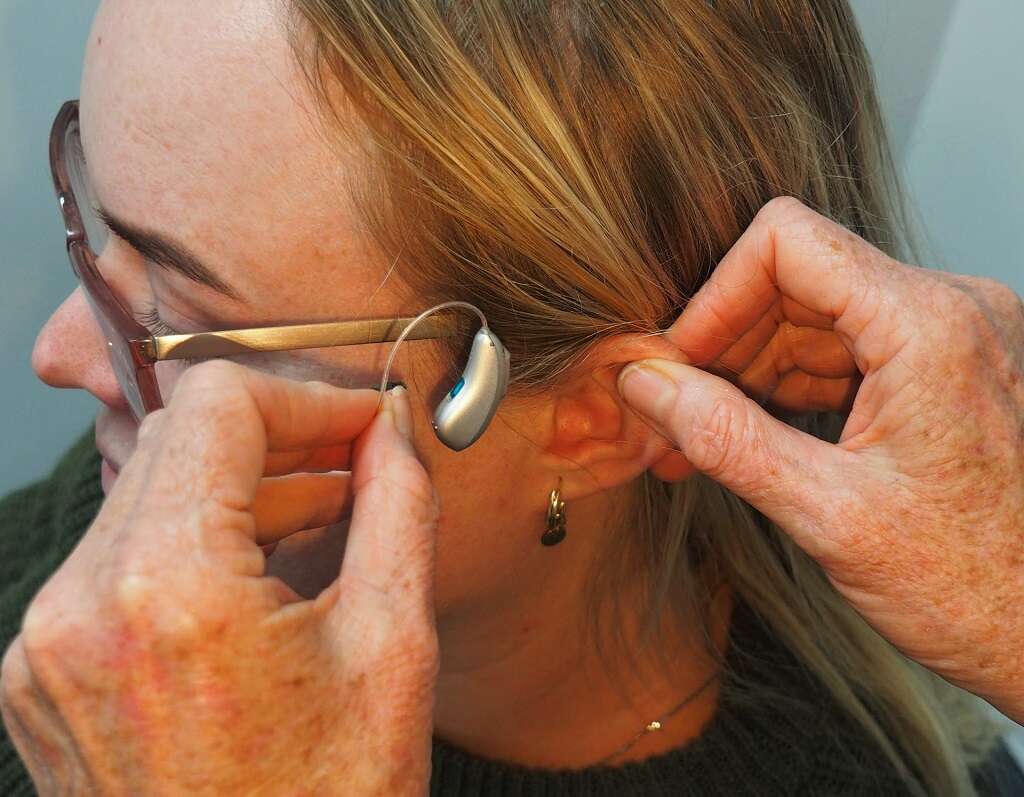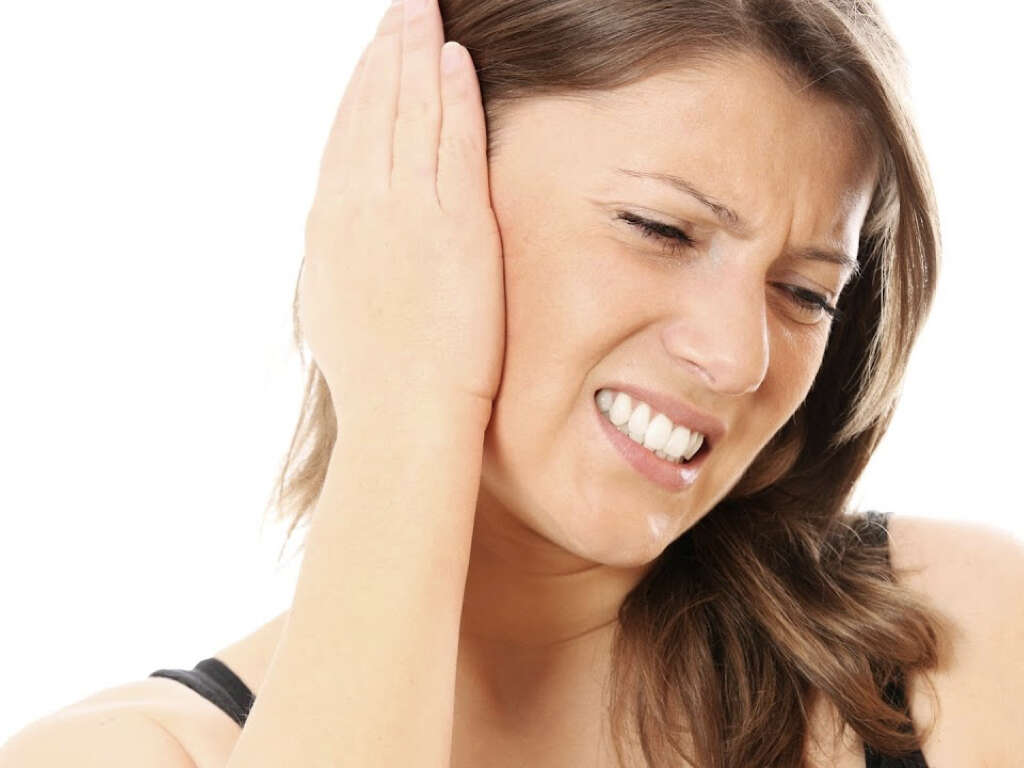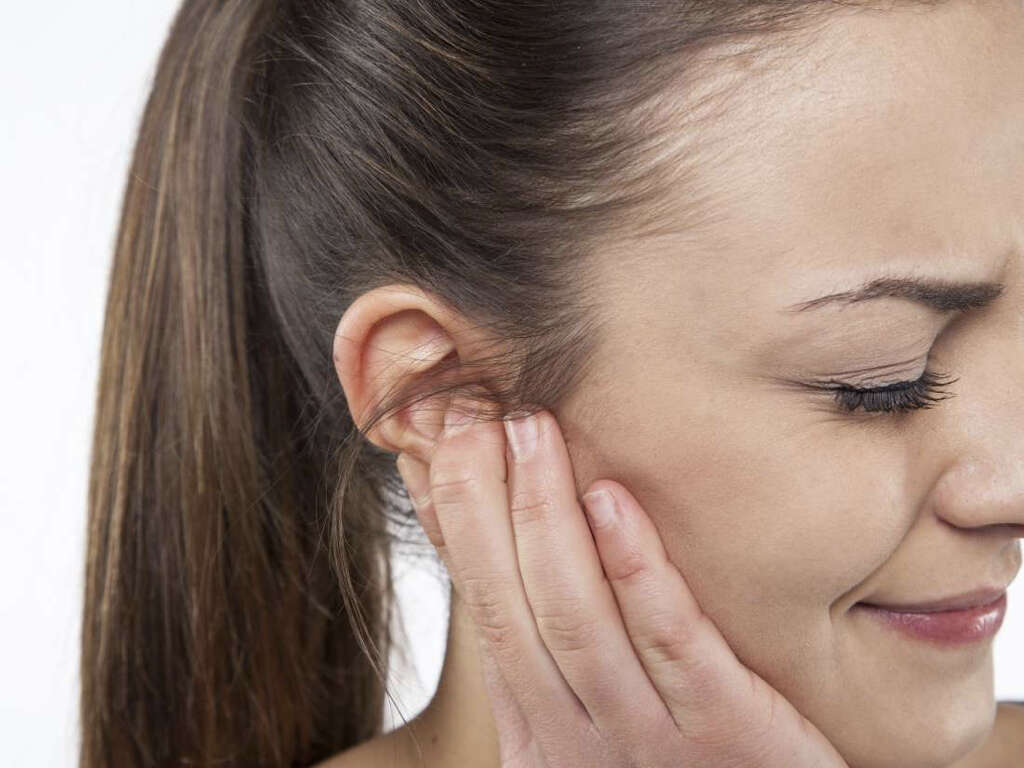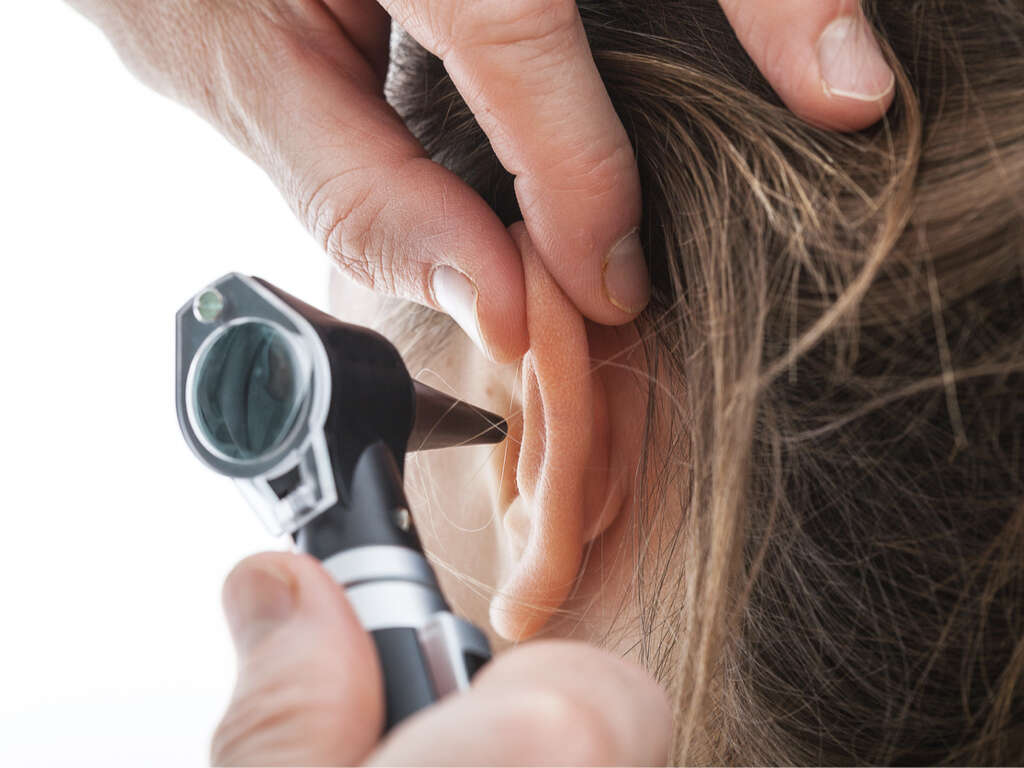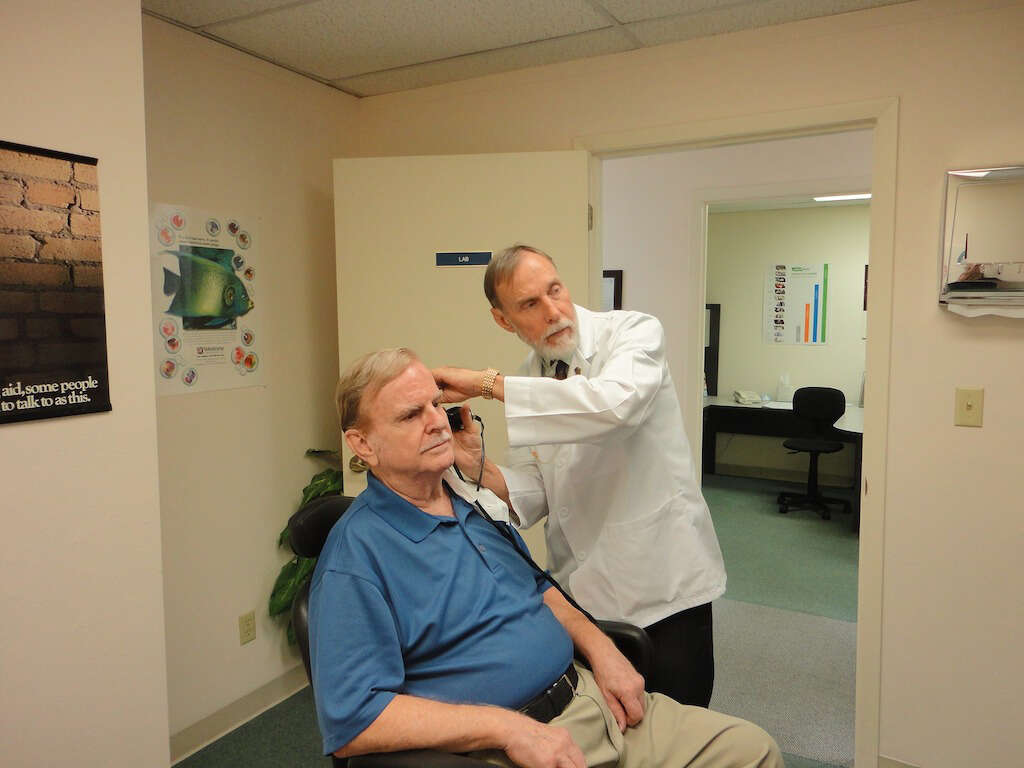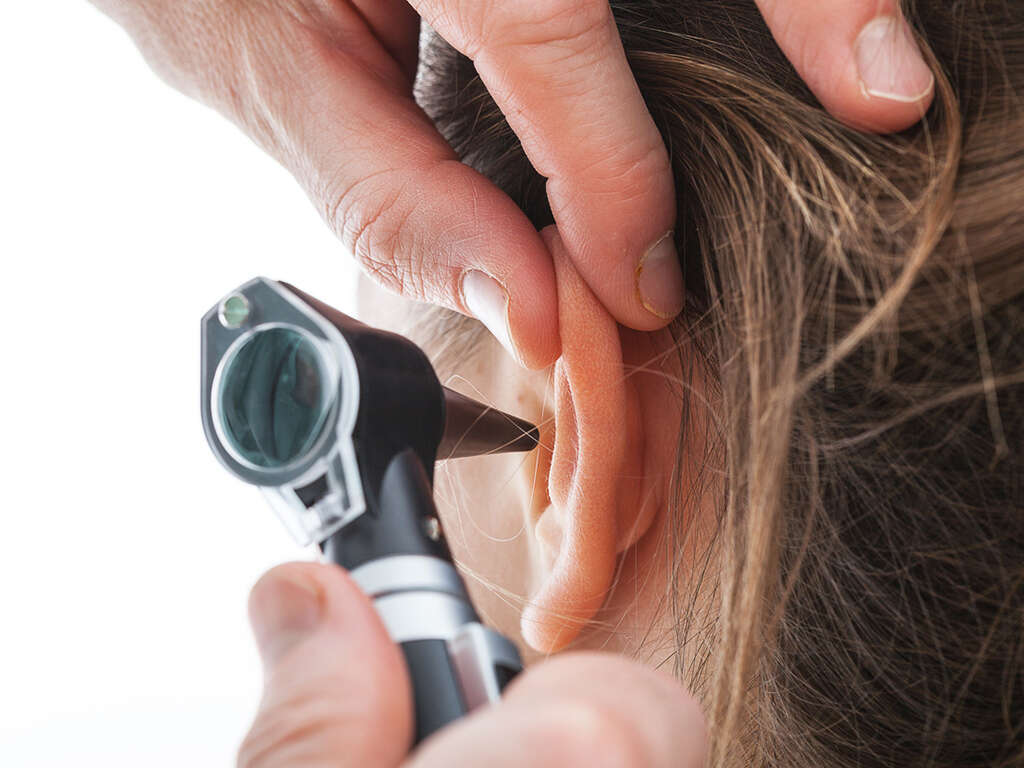10 Tinnitus Symptoms
 Article Sources
Article Sources
- 1. 'Tinnitus - Symptoms and Causes.' Mayo Clinic, 4 Feb. 2021, www.mayoclinic.org/diseases-conditions/tinnitus/symptoms-causes/syc-20350156
- 2. 'Tinnitus and Stress.' British Tinnitus Association, www.tinnitus.org.uk/tinnitus-and-stress
- 3. 'angguth, Berthold et al. 'Tinnitus Patients with Comorbid Headaches: The Influence of Headache Type and Laterality on Tinnitus Characteristics.' Frontiers in neurology vol. 8 440. 28 Aug. 2017, doi:10.3389/fneur.2017.00440
- 4. 'Tinnitus and Headaches: Do Headaches Make Tinnitus Worse?' British Tinnitus Association, 7 Oct. 2020, www.tinnitus.org.uk/blog/do-headaches-make-tinnitus-worse
- 5. 'Tinnitus and Sleep Disturbance.' British Tinnitus Association, www.tinnitus.org.uk/tinnitus-and-sleep
- 6. 'The Consequences of Tinnitus and Tinnitus Severity on Cognition: A Review of the Behavioural Evidence.' ScienceDirect.com | Science, Health and Medical Journals, Full Text Articles and Books, www.sciencedirect.com/science/article/pii/S0378595515300551
- 7. 'Tinnitus Patients Suffering from Anxiety and Depression: A Review.' The International Tinnitus Journal, www.tinnitusjournal.com/articles/tinnitus-patients-suffering-from-anxiety-and-depression-a-review.html
- 8. 'How to Cope when You Have Both Hearing Loss and Tinnitus.' Healthy Hearing, 3 June 2019, www.healthyhearing.com/report/52968-How-to-cope-when-you-have-both-hearing-loss-and-tinnitus
Tinnitus is the perception of sound in the absence of a corresponding sound source. It affects approximately 15 to 20 percent of the population, although it's more prevalent in older adults and men.
Beyond the perception of noise, there are no real symptoms of tinnitus. However, several associated signs can be relevant. Most of the time, tinnitus is a symptom of an underlying condition, such as an ear injury, age-related hearing loss, medications or a problem with the circulatory system.1‘Tinnitus - Symptoms and Causes.’ Mayo Clinic, 4 Feb. 2021, www.mayoclinic.org/diseases-conditions/tinnitus/symptoms-causes/syc-20350156 Protecting ears from loud noises, maintaining good cardiovascular health and limiting alcohol, nicotine and caffeine may reduce the risk of tinnitus.

Ringing or Noise in Ears
Tinnitus presents as the perception of noise in one or both ears. The most common effect is a ringing, with the pitch varying from low to high. In contrast, some people may experience a buzz, click, hiss or hum rather than a ring.
The volume of the ringing varies from person to person, but when severe, it has the potential to affect the person negatively. For some, the effects of tinnitus are minimal, while for others, it can reduce their quality of life. Masking the ring with noise from an external source can assist in coping.
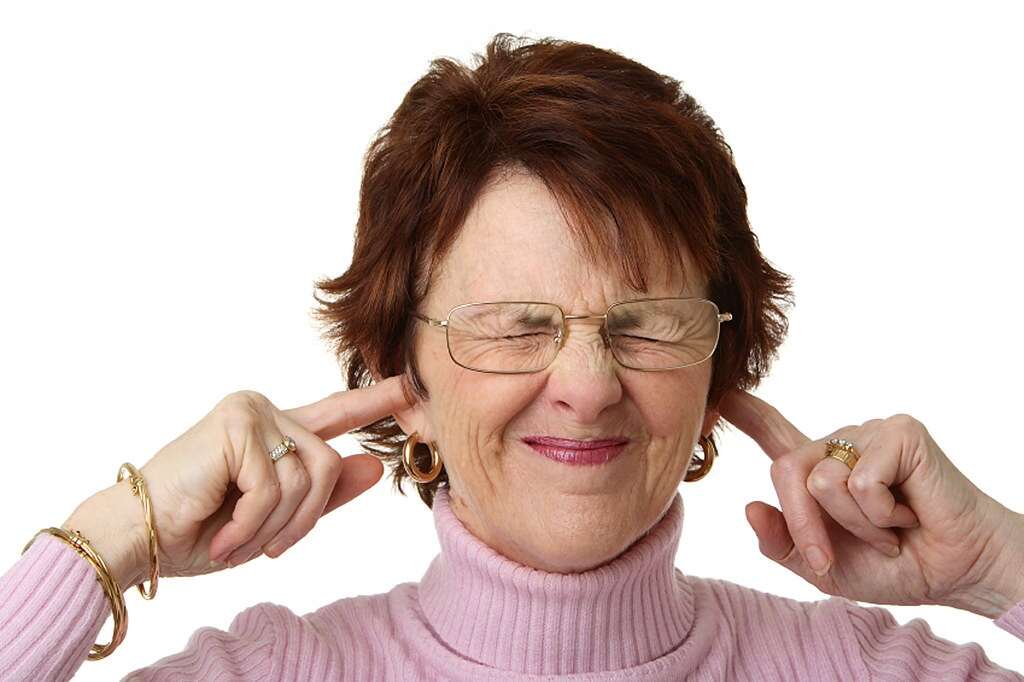
Stress
It's not clear if stress is a causative factor of the ringing, but research suggests that the two are closely linked. The onset of tinnitus during a period of high stress or in the aftermath is common.
When the body experiences stress, it produces stress hormones. While they help the body function in the short term, they can take a toll over time, manifesting as a ringing in the ears.2‘Tinnitus and Stress.’ British Tinnitus Association, www.tinnitus.org.uk/tinnitus-and-stress

Fatigue
One of the impacts of tinnitus is on the networks of the brain, changing them so that the person is better able to cope with tinnitus. As a result of the increased concentration needed to function, the person may experience more tiredness or fatigue.
The degree of fatigue is positively related to the severity of tinnitus. To limit fatigue, research suggests eliminating background noise and taking regular breaks and quick naps.

Headaches
Research indicates between 26 and 47 percent of those with tinnitus also present with headaches. It suggests that the severity of tinnitus corresponds with the severity of the headache. Those who have both headaches and tinnitus are more likely to have a decreased quality of life.3‘angguth, Berthold et al. ‘Tinnitus Patients with Comorbid Headaches: The Influence of Headache Type and Laterality on Tinnitus Characteristics.’ Frontiers in neurology vol. 8 440. 28 Aug. 2017, doi:10.3389/fneur.2017.00440
Several types of headaches have been associated with tinnitus, including unilateral headaches, migraines and headaches associated with a condition called idiopathic intracranial hypertension.4‘Tinnitus and Headaches: Do Headaches Make Tinnitus Worse?’ British Tinnitus Association, 7 Oct. 2020, www.tinnitus.org.uk/blog/do-headaches-make-tinnitus-worse When the headache is unilateral, it's usually on the same side as unilateral tinnitus.

Sleep Disturbance
Sleep disturbance is another problem commonly associated with tinnitus. Not all those who have tinnitus experience the associated sleep disturbances, with a number of people finding sleep a welcome relief from the ringing in their ears.
However, for others, the ringing is overwhelming, in many instances leading to insomnia and disturbed sleep patterns. While disturbed sleep is not a huge issue in the short term, it can be a problem when it becomes chronic, frequently causing poor functioning during the day.5‘Tinnitus and Sleep Disturbance.’ British Tinnitus Association, www.tinnitus.org.uk/tinnitus-and-sleep

Poor Concentration
Poor concentration levels are commonly associated with tinnitus. The constant ringing or noise in the ears can be overwhelming, making it extremely difficult to concentrate. In addition, the noise cannot be filtered out in the same way an external source can be because it's internal.
Tinnitus provides a distraction from tasks that require concentration. Although it doesn't make it difficult to hear, it can indirectly affect hearing by making it hard to focus on an external sound source.6‘The Consequences of Tinnitus and Tinnitus Severity on Cognition: A Review of the Behavioural Evidence.’ ScienceDirect.com | Science, Health and Medical Journals, Full Text Articles and Books, www.sciencedirect.com/science/article/pii/S0378595515300551

Depression
Research has shown that there's a link between tinnitus and depression. Major depression is seen in up to 33 percent of those with tinnitus, and it's thought to be associated with the mental toll of dealing with the constant noise.
The connection between depression and tinnitus warrants further investigation for mental health issues in those with tinnitus. Some studies have recommended those with tinnitus try cognitive behavioral therapy to help deal with the ongoing internal intrusion.7‘Tinnitus Patients Suffering from Anxiety and Depression: A Review.’ The International Tinnitus Journal, www.tinnitusjournal.com/articles/tinnitus-patients-suffering-from-anxiety-and-depression-a-review.html

Memory Issues
Working memory is a limited resource. The theory relating to memory and tinnitus relies on this fact. Tinnitus makes constant demands on the auditory processing parts of the brain. Due to its ongoing and persistent nature, the available working memory diminishes, resulting in poor memory recall.
Several studies have shown that there's a potential impact on the effectiveness of working memory in those with tinnitus. However, further research is needed to determine if this is affected by the severity of the tinnitus.

Cognitive Changes
Those with tinnitus have reported changes in cognitive ability. Research is ongoing to provide a definitive link. The changes in cognition relate to the extra burden placed on the processing center of the brain due to the need to constantly process the auditory input.
Those with tinnitus report poor intellectual performance, difficulties processing information, changes to learning processes and problems with coordination. Although research is ongoing, it's possible the sleep problems associated with tinnitus may also be a factor.
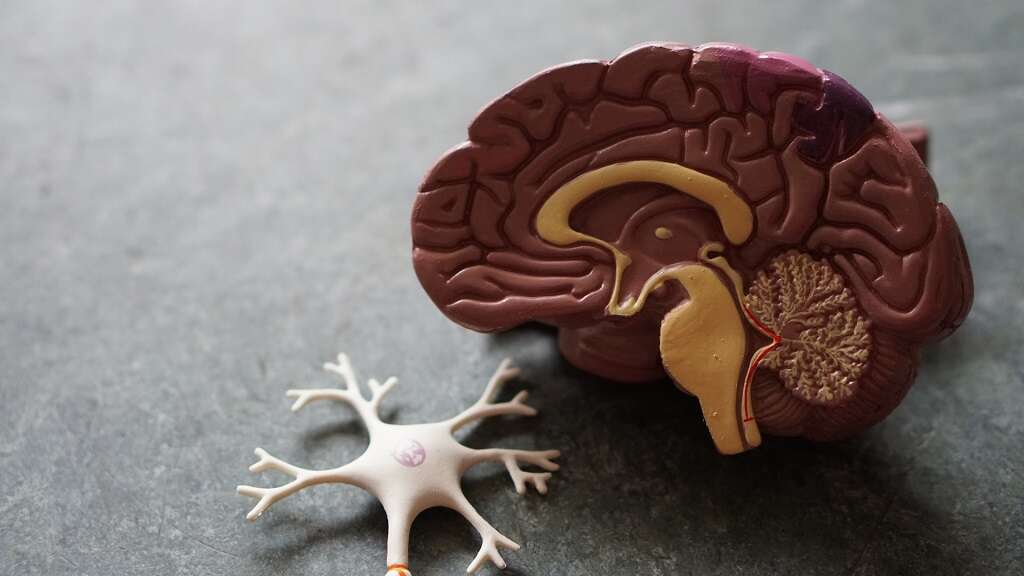
Hearing Loss
Hearing loss is one of the major underlying causes of tinnitus. Among those with chronic tinnitus, around 90 percent have some form of hearing loss.
Tinnitus places an increased burden on those with hearing loss. They don't have all of the auditory tools that could assist with coping. Restoring hearing through the use of assistive devices such as hearing aids may improve coping by allowing the wearer to increase the background noise to mask the internal noise.8‘How to Cope when You Have Both Hearing Loss and Tinnitus.’ Healthy Hearing, 3 June 2019, www.healthyhearing.com/report/52968-How-to-cope-when-you-have-both-hearing-loss-and-tinnitus
